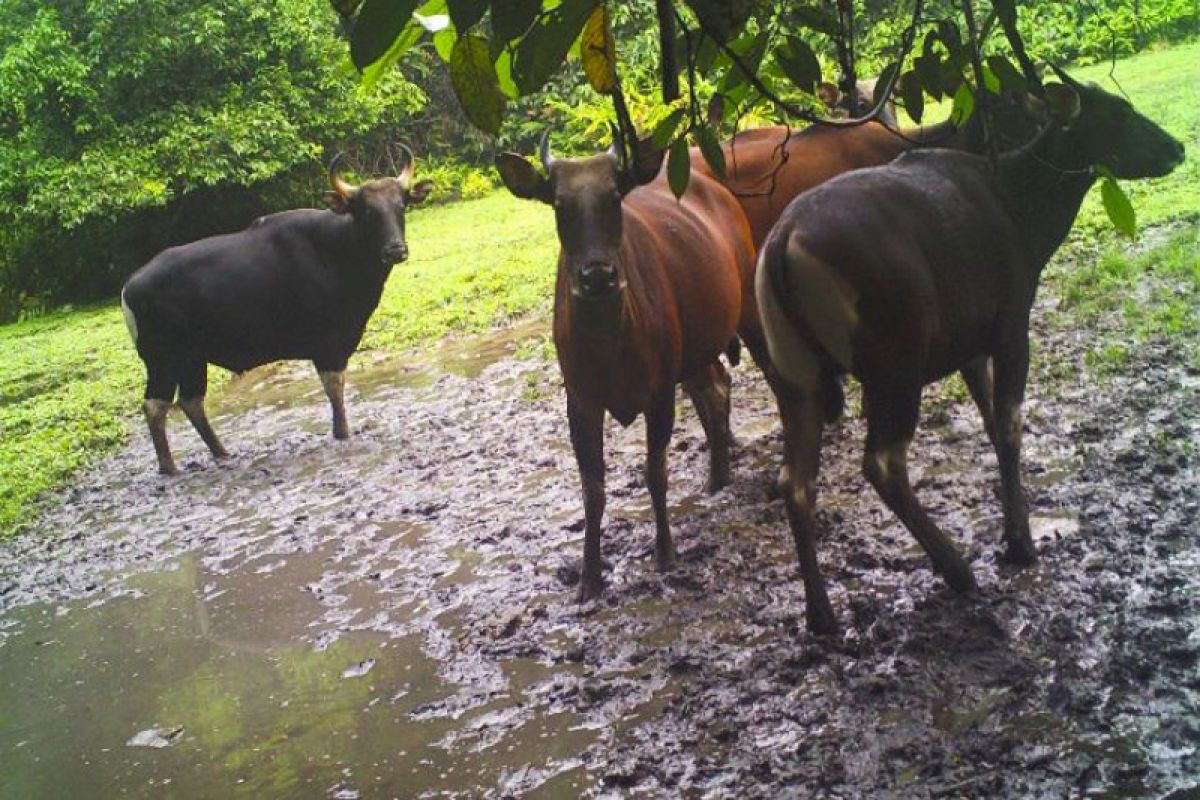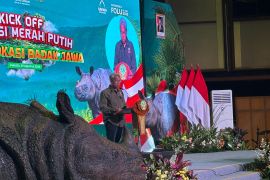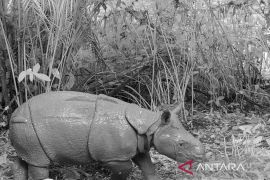"Based on our research data through camera capture in 2018, it is estimated that there are only 2 groups or around 20 Bornean bulls in the Belantika Hulu forest," research coordinator of the Indonesian Orangutan Foundation (Yayori), Gusti Wicaksana, said here on Tuesday.
Yayori's team first conducted research on the Bornean bison in Belantikan Hulu Forest in 2003 by installing cameras at several points, he added.
In that year, it is estimated that 30 to 40 bulls were recorded on camera.
"Since the Belantikan Hulu Forest is not a protected forest, but a production forest with an area of 3 thousand hectares, so people from outside can easily enter, and it's easy to hunt there," he said.
Apart from hunting, the decline in the habitat of the endangered animals can also be attributed to their longer reproductive cycle. Moreover, not all females are productive.
"The food in the forest is quite abundant, such as bamboo, melakai, ferns, and others. Regarding natural predators, the bulls are most often chased by crocodiles when crossing rivers," he informed.
Another threat to the bull population is the logging of forests where they live, which is reducing the size of their habitat.
"Cutting down trees will have an impact on reducing breeding grounds and shelter for bulls and other wildlife," Wicaksana said.
In Central Kalimantan region, the habitats for animals that are more active at night to avoid hunting and have high sensitivity are in Seruyan and Lamandau districts in Belantikan Forest and Schwaner Mountains.
"Efforts to anticipate the decreasing habitat of the Kalimantan bulls are continuing, for example, by providing outreach to the community in four villages, including the villages of Nangamatu, Kahingai, Perikan, and Bintang Mangalih, which are directly next to the Belantikan Hulu Forest," he informed.
Meanwhile, head of the Regional Conservation Section (SKW) II Office of Pangkalan Bun under the Central Kalimantan Natural Resources Conservation Agency (BKSDA), Dendi Sutiadi, said they are continuing to work with foundations or non-governmental organizations that focus on environmental conservation in conducting research and campaigns.
"Including collaborating with Yayori in conducting research on the Bornean bison, and we also plan to conduct research on the Borneo elephant," he said.
Sutiadi emphasized that the ban on the hunting of Kalimantan bulls refers to Law No. 5 of 1990 concerning the Conservation of Natural Resources and their Ecosystems, which prohibits hunting, killing, preserving, and trading protected wild animals, whether alive or dead.
Violation of the prohibition is subject to a five-year prison sentence and a fine of Rp1 billion.
Related news: Tanjung Keluang Park now orangutan conservation site
Related news: Nursery to be built support forest rehabilitation in W Kalimantan
Related news: Eight orangutans released in C Kalimantan forest
Translator: Kasriadi/M Husein Asyari, Katriana
Editor: Azis Kurmala
Copyright © ANTARA 2023












